Writer/producer Ronald D. Moore got his start in Hollywood on Star Trek, amassing dozens of writing credits from The Next Generation, Deep Space Nine, and even a couple from Voyager. He also co-wrote two Trek feature films (Generations and First Contact). He has kept very busy in the two decades since moving on from the Trek franchise, and picked up an Emmy and a Peabody Award for his reimagined Battlestar Galactica.
Moore’s latest sci-fi television show is For All Mankind on the Apple TV+ streaming service. The show—which has its share of Star Trek references—tells an alternative history of an expanded Space Race that never ended, starting when the Soviets were the first to land a man on the moon. Season two of the series debuts this week and jumps the show forward in time. In the first part of our exclusive chat with Moore, we discuss season two and how it is imbued with the DNA of Star Trek.
Your stated synopsis of For All Mankind is that it shows an alternate history with “the space program that we were promised but never got.” Season one was very aspirational, but season two is a bit darker. Are you trying to show the price to be paid for an extended Space Race and heated up Cold War?
Well, to an extent. It’s certainly showing that even an expanded space program with lofty aspirational goals isn’t going to be a cakewalk. It’s still a dangerous activity. It’s still caught up in geopolitics as well as domestic politics, and that the military would certainly be involved. Yeah, there’s an aspect of it being darker and more dangerous in the second season because that seemed like what the reality would have been as we got into the ‘80s and the Cold War and the coming of Reagan and all that. But the show still has a very optimistic viewpoint of the place of space travel in our lives and how it can make life better for everyone on Earth is still a core tenet of the show.
Season two was being put together just around the time the new Space Force was just announced. I was wondering if that played into some of the NASA vs DoD tensions in season two, and is there an allegory or warning about the militarization of space?
It’s at least a cautionary note to it. The Space Force thing came up yes, while we were in the middle of doing stuff, and we all just kind of rolled our eyes. Like, ‘Oh my God, what’s this nonsense?’ But the military had been part of the space program from the beginning. It was a military venture in a lot of ways. NASA became a civilian agency but was populated with a lot of military officers. And most, if not all, of the original astronauts were American test pilots and fighter pilots. A lot of the DNA of NASA’s personnel came from the Military Industrial Complex. And as the space program developed in reality, there were plans for some of the things that we play in season two. In season two the Air Force has its own wing of military shuttles that fly out of Vandenberg Air Force Base. Well, that was a real plan. They really had plans to do that. They only shelved those plans after the Challenger Accident. So, a lot of the things that we’re talking about in season two in terms of the militarization of space is not just sci-fi. This is a reality because there is a military interest in space. There’s a national security interest in space. You can’t just pretend that that’s not part of the equation.
You already had a number of Trek (and Battlestar) vets on For All Mankind, like Maril Davis, David Weddle, and Bradley Thompson. And for season two you brought in Joe Menosky. First, had he already left The Orville, or did you nab him from your old friend Bannon [Braga]? And what was it like working with Joe again, who is of course an amazing writer of some classic Star Trek.
[laughs] No, he had just wrapped up his time at Orville. And it’s great working with Joe again. We go way back. I spent a lot of years in writers’ rooms with Joe and it was just like getting back in the groove of it. He has a really fascinating mind. He’s one of my favorite people to have in a writers’ room because he listens a lot and he’s listening to all the dialogue and conversation and debate back and forth and then he’ll just suddenly say something that cuts either straight to the point that you’ve missed all along, or he’ll just pitch some completely left-field idea that you never thought of. You’d be like, ‘Oh my God, that’s it!’ So I love working with Joe. And also, Maril, David, and Brad were from Trek, as well as Battlestar. Maril started at Star Trek when she was a PA and then an assistant. And then David and Bradley were writers on Deep Space Nine.
The post-credits ending of season one showed a dramatic Sea Dragon launch, which I learned was a real proposed thing. Are you using space consultants to help with these things, or is this stuff you and your staff heard of back in the day and can now make real on the show?
A little bit of both. When we first conceived the show and I was putting the writing staff together, I sort of dove into what are the projects that NASA came up with that were never realized. And at first, I thought there would just be a couple of things to find, but it turns out there are hundreds of things. There’s all these plans and design proposals all over the place. And some of them have been compiled into ebooks and other media that I started to do research on. And some of them were just inspiring, like the Sea Dragon, which was just something I stumbled across. I’m an aficionado of the American Space Program and I’ve never heard of this concept, and I was blown away by it. And then I looked on YouTube and there were some sites that had done animation and what this thing would look like launching out of the ocean and I thought that’s the coolest thing I’ve ever seen. And visually, it sets us apart from the reality that the audience knows. They’ve never seen this kind of a launch and I thought that would be amazing. And then it worked into our plot in a perfect way, because in season two we’re saying that Sea Dragon is how they lift major components for the Jamestown base to the moon. Sea Dragon is so much more capable of heavy lift than even the Saturn V, so big components of the Jamestown base and resupply missions take place on Sea Dragon.
So then it was going through all that kind of material of projects that were proposed but never realized. We were looking for things that would be interesting and fun and things that are plausible and trying to compile them into a coherent program that all makes sense for how the parts all work together. The Space Shuttle is still part of that system. Skylab is still part of that system. But then here’s a moon base. What was the purpose of the moon base? Well, how about mining? Because that’s how they started the mining operation. So the base is constructed in a way that makes sense to construct a mining operation. And what other satellites that they have. What’s the purpose of Skylab? We wanted all these components to kind of be part of a larger organic whole.
Season two takes us into the ‘80s. As someone born in the ’60s that decade might be even more salient for you growing up in that era. Did you have to temper any impulses to over-indulge in ‘80s nostalgia?
I wasn’t too tempted to go too far because there have been so many ‘80s things done already that overdo it, where it’s all about the hairstyles and all about the clothes. I told our costume designer, “I don’t want to do the big Dynasty shoulder pads.” We’re not doing that. We’re not doing the things that have become caricatured over and over and over. You had to have certain elements of it, just to make it the ‘80s. Ronald Reagan is a fixture. Some of the music is really iconic and you can’t not play some of that music if you’re going to be in the 1980s. But, when I was living through the ‘80s, it didn’t feel like an over-the-top caricature. It just felt like this was reality. We all just kind of treated it like a normal place to be. It was just our sense of the norm. So you want the show to feel like that. The characters aren’t aware that they’re in a period piece. The characters are just living their lives. So you didn’t want to try to cram in every single ‘80s reference that you could think of. You just wanted to present it like this is just another day.
You use some tricks to incorporate historical characters in the show, like in season one you had Nixon but mostly with audio. In season two you had video with Reagan and others using some archival footage but also stuff that is faked. Can you talk about how you brought that to life?
The technology, for lack of a better term, is the deep fake technology that people are always talking about. That is something we tried to tap into. How can we have Ronald Reagan at a press conference or on a video phone talking to our characters and change dialogue? And it’s certainly possible, but it’s still an expensive, difficult process. So, we had to sort of pick and choose our moments, and they’re still not cheap and easy. That technology is obviously just going to get better and better as time goes on, but at this point in time, we had to just sort of decide when we’re going to do this, and it had to be very specific things. It takes a lot of work. The original source clips are obviously not HD quality. That’s one challenge. You need people who can convincingly mimic the voices of the people, whether it’s Johnny Carson or whether it’s Ronald Reagan. And then you have to deal with what’s called “lip flap” which is literally watching their mouth move in certain shapes to form vowels and consonants. That takes intense work and it’s just a very tedious process to pull it off. So you can see we just did it a few times here and there.
One of the changes seen on For All Mankind is the earlier diversifying of NASA, with even more in season two. Is this just a reality that you can’t make a show in the 2020s with just a bunch of white guys? Or do you feel that this more rapid expanded Space Race would have brought more people of color and women into the space program?
That was one of the core concepts of the show. I felt that I’m doing an alternate history of the space program that was bigger and better. And why is it better? It’s better not just because we get lots of cool new tech and new spaceships and moon bases we never saw. It’s also that we’re creating a better world. To bring it back to Trek, it’s the road to Star Trek. So what is the road to Star Trek entail? It entails becoming better people, having a better society. And how could the space program help move us down the road to becoming a better society? Well, what if we put women in space earlier than it happened? Why would that happen? Well, the Soviets put a woman in space 20 years before NASA did. So maybe in the context of our alternate reality, the Soviets continue to up the stakes and they put a woman on the moon. And then that sparks the United States to go, ‘Oh, my God, where are women our astronauts?’
And then what starts out as a PR stunt to sort of match them becomes something bigger when women are suddenly seen doing heroic dangerous things in space that heretofore had been done only by white men. And that sort of national experience of watching that happen would spark more social change. Because you’re talking about the early ‘70s when there was already a lot of social change in the air. There’s the Women’s Liberation Movement. There were a lot of African-American Civil Rights Movements that had happened. The ferment was to sort of go even further. So we said: As NASA led the way and showed America different kinds of heroes then the society would move that way too. And NASA would become even more diversified. And it would happen at a faster pace. Again, it would move the country and move the world down a road towards a more inclusive kind of future.
They recently announced season three, so are you jumping forward another decade? As For All Mankind moves forward in time, are there concerns about diverging too far where it may no longer feel real?
One of the things we’ve said in the writers’ room is that we don’t want to get so far off the track of actual history that it feels like it’s a different world. Not yet. We wanted it to feel plausible like all these things really could have happened. This is the road not taken. You want it to be able to recognize certain tentpole moments of history, and pop-cultural moments of history. So that when you’re watching the show, you can go, ‘Oh, yeah, that is the ‘80s. It’s a different 80s than I remember, but yeah, a lot of the same things are there. Ronald Reagan’s there. I remember that tune. I know who John Lennon is.’
And yes, we are going to go to the ‘90s in season three. And we will again try to maintain certain touchstones of what was really happening in the ‘90s. Now that said, the further you get along this path, you diverge from the main branch. And as you get further and further away from the main branch, things are going to change more and more and more. So there is a point where the present that is displayed in For All Mankind will be fairly different from the world we know. But even then we’ll try to keep in touch with our reality.
You wrote your first alternate history over 30 years ago with “Yesterday’s Enterprise.” Did Star Trek prepare you for writing the alternate history in For All Mankind?
Yes, I think Star Trek basically taught me everything about writing for television a lot of ways. And we did a lot of time travel episodes. We talked internally about a lot of history, a lot of alternate history ideas. They weren’t just like “Yesterday’s Enterprise,” there were various other pitches in the room of timelines changing and shows we never did, or at least concepts of it or an alternate reality were certain things that happened that didn’t take place. So, I had been engaged in sort of conversations about these kinds of concepts as a theoretical exercise for a very long time. So, approaching this project felt very familiar. And it was fun because I had done all that groundwork in Trek and it was also just something I enjoyed. I like history and I’ve always loved the sort of “What if?” game of history. What if this happened? What if Admiral Nagumo makes a different choice at the Battle of Midway? How would that have affected the rest of World War II, and so on? So, it just kind of played into my strengths.
For All Mankind season 2 arrives Friday
For All Mankind season two moves the show forward a decade later to 1983 and the height of the Cold War, with the US and Soviets going head-to-head to control sites rich in resources on the moon. The 10-episode second season will debut globally with the first episode on Friday, February 19, 2021, followed by one new episode weekly, every Friday, exclusively on Apple TV+.
This first look featurette gives you a taste of what to come, including Ron Moore talking about season two.
More Moore to come
Come back later this week for the rest of our exclusive interview with Ron Moore, where we discuss the current state of Star Trek in film and television, his thoughts on a Section 31 show, and his next big career move.
Check out more exclusive interviews at TrekMovie.com.

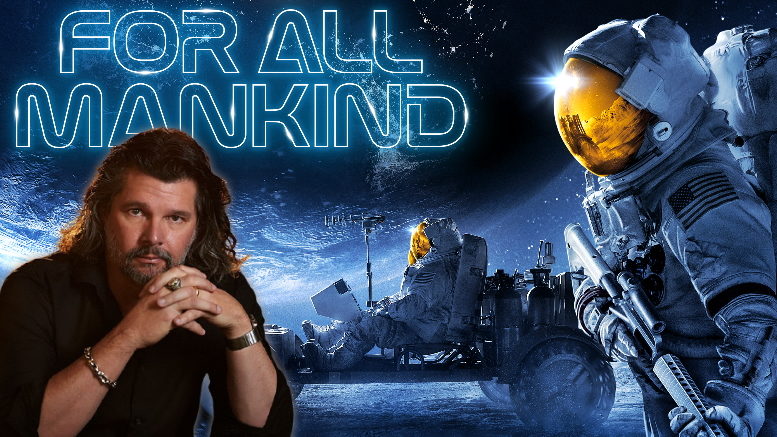

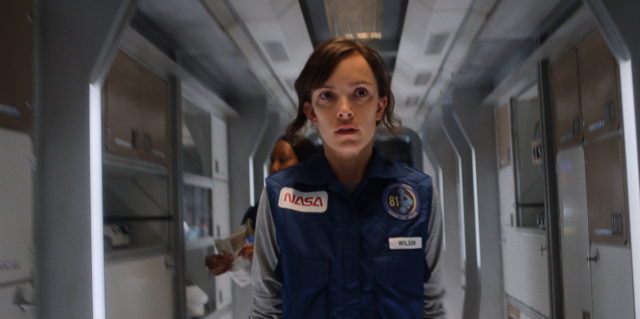
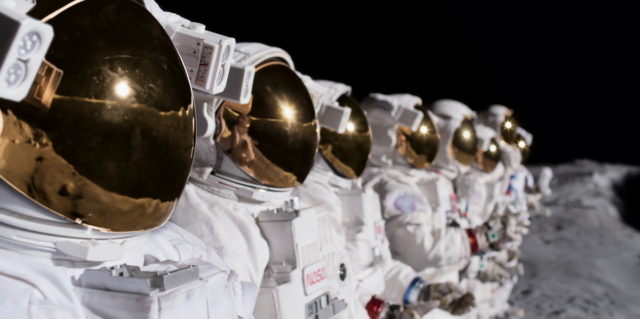

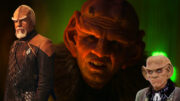

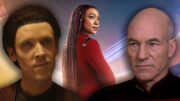
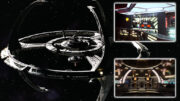
He should be the Boss of Star Trek !
I’d rather see Braga get that.
Noooooooo!!!
Not much chance of that. He’s a Disney Drone now.
Ah, no thank you.
I’m grateful that new creatives with a new strategic vision have charge of the franchise.
Moore was one of the guys who couldn’t imagine a future beyond Voyager.
And he’s also the guy who made a wonderful BSG reboot but couldn’t stick the landing. Loved BSG, but it’s unrewatchable.
strategic vision? What about just delivering a good story that isn’t bonestick stupid and has emotional resonance, one that merits rewatching? That hasn’t happened yet this with these folks for me.
And BSG’s endgame failings aren’t any more damning than those with TWIN PEAKS season 2, all of which I’ve rewatched at least 20 times, or the many massive mistakes with TMP, which I’ve watched well over 100 times.
kmart, having recently gotten rid of our boxed sets of DVDs for the early seasons of BSG because neither my spouse nor I would watch it again, we’ve come to realize how large the failure was.
Sincerely, if we couldn’t bring ourselves to rewatch it during Covid, it’s not happening. (I also bailed in season 2 of Lost which was available on a streamer.)
It’s great that some viewers like you can enjoy a story that you know is going nowhere in the end, because I agree that BSG had very many great qualities. But we can’t.
By the way, when I talk about strategic vision, I’m talking about how Secret Hideout is situating a diverse group of series across the timeline and coming up with a workable concept for a further future. Yes, SH built that with existing franchise and Roddenberry concepts including the Temporal Cold War and the post-Armageddon reset, but they came up with something new that’s viable.
Moore and Braga just gave up when they felt technology had advanced too much in Voyager. Worse, they effectively used their stature to gatekeep other ideas for how the franchise could go forward when their own vision failed.
I love a lot of their work, but that doesn’t keep me from seeing that they needed to move on to allow others to take up the mantle.
What has Moore got do with Voy other than a couple of scripts?
Braga was in charge of Voy and Ent right up to 2005.
He joined Braga in the “We can’t go forward after Voyager” mantra that foreclosed any new series or stories after Voyager returned to Earth.
The idea was that since Voyager’s return led to such an enormous jump in technology, any new series would be too much like magic.
So, the series after Voyager had to be a prequel (Enterprise).
Those of us who were fans at the time saw this ad nauseam in interviews (although Moore did say also he would have loved to have done a Klingon space opera).
It really contributed to the conventional wisdom that the franchise had run its course and there were no new future stories possible to tell past 2480.
This is one of the reasons why Simon & Schuster was allowed to set up a writers room and take the Prime Universe forward after Nemesis. But they did such a good job that they proved that it was possible to tell more stories. Now those Relaunch novels are basically their own universe after 2380.
Moore stopped writing for ‘trek’ after those handful of EPs and had nothing to do with the franchise since that time.
Except, he’s not. So there’s that…
Ira Steven Behr
Solid piece, interested to read more of it. I talked to him before s1 and really got the idea this series is going places in the most interesting ways. I’m just sorry I never asked him if he had any Major Matt Masons in the toy chest as a kid!
I think the current Star Trek producers should be looking at Trek vets. like Ronald D. Moore, Ira Steven Behr and other Trek writers and backstage people to come back onboard to write or produce their own ideas/takes on certain parts of the Star Trek multiverse and work to build a consistency in the visual language/style – I don’t want to see a big action set piece in a seemingly Tardis-like rollercoaster turbo-lift seen that just removes all of the believability to the story you want to tell in favour of a pointless action scene. I don’t mind new Star Trek but I’d really like to see at least one of these live-action shows follow through with some of the concepts and ideas they are presenting. So far Lower Decks has been the only satisfying Star Trek show that culminated in a really satisfying conclusion.
Sadly, Kurtzman and his ilk would see the inclusion of such Trek alumni as a tacit admission of how royally they’ve messed up the franchise. If we know anything about Kurtzman, Chabon (sorry I mean “Pulitzer-award winning Chabon”) and their band of charlatans and type of people they are, they won’t do such a thing.
“Charlatans and type of people they are…”
Can we please like or dislike Discovery without making baseless character attacks.
Agreed on this point in particular.
trolling. final warning
But they haven’t messed up. Not in the way you insist upon having us believe.
There may well be a place for more of the TNG/DS9/VOY/ENT people, even so…
Would never happen. Hollywood is one of the most egotistical and narcissistic industries ever. Kurtzman and Co really believe they are awesome at what they do.
THAT shows right there that they deal in fantasy, not in the at least marginally reality-based field of science fiction!
Star Trek is fantasy
LOTR is fantasy, trek is supposed to be better than that at least. (not a fantasy fan, but lifelong SF fan.)
Even if Kurtzman did bring in someone like Moore (or Behr), it would never work. Moore is not one to mince his words- and considering the low opinion he had of Voyager, just imagine what he would say about jumbled, cringey dreck like Discovery. Plus, a talented Trekspert like Moore would be a threat to Kurtzman and his fiefdom of high-octane telenovelas.
Moore is in a better position than GR was when the STARLOST people asked him to step in and save the show from cancellation. Supposedly GR told them I’ve already got a winner, why should I knock myself out saving your loser of a show. And then when they gave up and asked him who else they should try, he said, Harlan Eliison — too bad you already screwed him over so bad.
Moore has a much stronger hand and standing now than GR ever had, and I can’t imagine anything except insane Shonda-level money might sway him. Sure, they could try an appeal to ego that ‘only you can save TREK’ but he’d know it was BS given that they’ve happily let these other folks pee in the franchise swimming pool for so long.
But, speaking as an extremely disenchanted TREK viewer, if they’d gone to him with SNW and a ‘run this thing however you want’ directive (fat chance of that!), I’d’ve been over the moon to see him take it on, and I’d’ve paid each week to see the result, which is more than I can say for any 21st Century TubeTrek.
Leave the old trek dinosaurs in the dirt. We don’t need them.
Aside from the fact that you are a permanent troll, you are also incredibly disrespectful of those who helped to build Star Trek. You are no fan.
“ You are no fan”
Come on.
I’m not too big a fan of Moore’s work on Trek, to be honest. But I’ve liked everything of his that I’ve seen since, and I liked the first season of “For All Mankind” quite a bit. So I’ll definitely be tuning in for season two.
Looks like an interesting show, but the title? “For All Mankind” …. this is 2021…
Title is an interesting play on intent behind original phrasing, more relevant now than ever if you consider the words with the right level of irony.
Given the show’s setting during the 1960s and 1970s, is it really not appropriate? Should Mad Men have been retitled Mad People?
Both shows revolve around the patriarchal culture of their time- and they really don’t glamorize it.
I laughed but then had to stop and think…. You were poking fun at that sort of thing, right?
The plaque left on the moon by the Apollo 11 astronauts reads:
HERE MEN FROM THE PLANET EARTH
FIRST SET FOOT UPON THE MOON
JULY 1969 AD
WE CAME IN PEACE FOR ALL MANKIND
1: It’s a reference to the plaque on the Apollo 11 lander decent stage, any “updated” version would lack the historical resonance.
2: It’s short for “humankind”, it doesn’t exclude women, regardless of any individual choice to read the “man” part as only referring to men.
Nice wish but the writers room of that era are showrunners not hired guns with their own projects.
Going back to ‘trek’ just to please some ain’t happening.
When I first heard of For All Mankind I thought of that excellent documentary from a couple of decades ago. And that it was going to be expanded and fleshed out even more. It caused me to be annoyed that I refused to buy Apple TV. But then I heard what the actual concept of it was and decided, “Nope. Hard pass.”
I will give Moore props for his re-imagined BSG, however.
It is an interesting alt history though. The Russians really were close to launching a manned moon landing in 1969, but they were doomed when their N1 moon rocket failed in flight test. But what if it hadn’t failed? FAM depicts a history where they landed Alexi Leonov on the moon in June 1969, a month before Apollo 11. A side effect is depicted in which Congress holds hearings in July about NASA losing to the Russians despite the billions of dollars spent. Ted Kennedy chairs this hearing and therefore is not at Chapaquidick, and never has the car accident which derails his political career. Teddy becomes President in 1973, but is involved in a sex scandal and it is implied that Ronald Reagan becomes President in 1977 instead of 1981.
I’m not against alt history fiction per se… I like the idea of “what if America had lost the Revolution?” or “what if Germany built a working nuke before everyone else?” But this one… Just doesn’t pique my interest.
Thought the same thing, made it halfway through Season One and gave up (Free trial for Apple TV). I may re-try with S02 being set in the 80s but… this alternate history trope is getting old fast.
Watched S1 and was entertained. I liked the alternate reality concept of the show and the way they depicted the people, the social politics of the late 60s and 70s and especially the NASA Apollo technology. Overall I give it a Thumbs Up and will sign up again to watch S2.
SPOILER ALERT for those who haven’t yet watched S1. I was getting concerned about the anti-Russian and warlike direction the show was taking in the 2 penultimate episodes of S1. In our reality, the 1975 Apollo Soyuz Test Project showed how much the astronauts, cosmonauts and engineers from both sides of the cold war could work together and respect eachother in real life – ala what we saw in the movie Marooned. Thankfully the writers ended the season with a very satisfying finale.
Btw, I wasn’t really sure how big a deal current Star Trek theme composer Jeff Russo is, but he is the composer of For All Mankind’s theme and I’ve noticed his name more and more on other shows. Turns out he is a big deal.
The first Season was great. It dragged a bit in parts but overall a solid first season. While I can appreciate, that he’s trying to do a character focused show, I do hope, that season two dials the personal drama a little down and focuses more on the “mission” … but that’s really all. Otherwise a great show and a clear recomendation for anyone, who hasn’t seen it.
Yeah, the FBI investigator storyline was over the top and dragged down Season 1.
They were a little off in the timing, but I think the show was trying to reflect the official government and FBI phobia of the 50s and 60s regarding everything from communists to homosexuals. If you wanted to work for a government agency like NASA, you needed to be “squeaky clean” and conforming to society norms! Conformity and assimilation was a must.
Not too unlike what is going on today, I’m afraid. Sans the “squeaky clean” part.